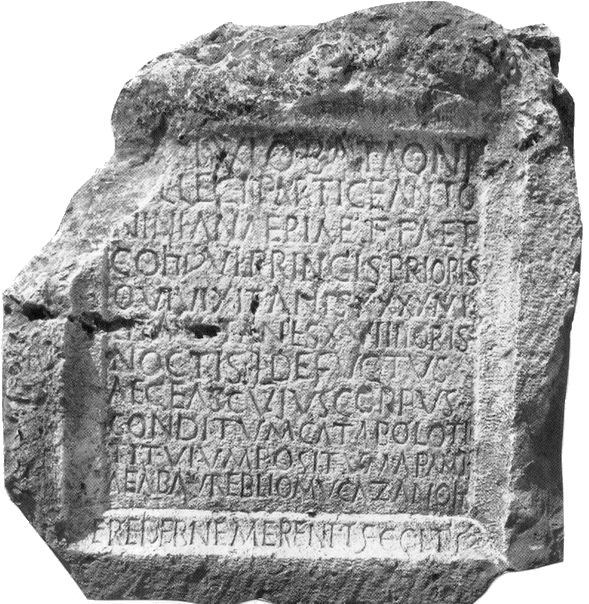I am leaving the discussion of Quintilian who of course also features in these Cambridge Classics volumes until later in the Spring because soon I should have the brand new Loeb volumes providing us with Quintilian’s declamations themselves. Here I’m going to deal with the further discussion of books, codexes, and the book trade offered by P.E. Easterling one of the editors of Volume 1 Part 2.
Somewhere in the late 8th century B.C. Greek as we know it in the Hellenistic and Roman periods was invented by borrowing a Phoenician system used in Syria, which in turn was based on Semitic languages. Previous attempts at adaptations for the writing of Greek had not been entirely successful, even at Mycenae and even so then the language was for specialists, keepers of records etc. While the Semitic system was purely consonantly there were vowel sounds that went with it, but the Greeks created forms for the vowels and the language became the first real, detailed ‘western language’ with a full alphabet. According to legend Cadmus of Tyre brought alphabetic letters to Thebes, and originally according to Herodotus (5.58), the father of Greek history the letters were known as phoinikeia. Interestingly, the Greek we find on the earliest potsherds etc. still followed the Semitic practice of letters read from right to left. Not surprisingly, the earliest documents like the recording of Homer’s epic poems, originated in oral performances, and then were written down. They remained oral texts. It is also not clear exactly when papyrus first showed up in Greece, but I would wager it was a Mycenae since we know they traded with Egypt, and there is evidence of Egyptian influence not only there but in places like Heraklion on Crete, and on the island of Santorini. What we do know is there is evidence of papyri already in use in Greece in the 6th century B.C.
The first clear traces of what we would call books, and a book trade shows up in Athens in the last quarter of the 5th century B.C. part of the Golden Age of Greece and the rise of Athenian democracy. Mostly, we are talking about poetry being written down in the early period, including of course Homer. (cf. Hesiod’s Work and Days as an early document). It is also in the 5th or 6th century B.C. that we hear about elementary schools in Greece, but Solon had already set up laws about such things. At the outset book reading was a communal affair, with skilled readers and various listeners. Books were read aloud and written with full awareness of that fact. “The book at this early stage of transition from a fully oral to a fully literate society, serves as a script for recital rather than a text for individual study; though now written literature is still a communal experience and its direct, powerful impact on the emotions of its audience [is] vividly described in Plato’s Ion (535e).” (p. 160).
The production of books for public sale to whomever does not seem to have begun until the late fifth century in Athens where we discover they are being sold in the stalls, next to the garlic and the spices (Eupolis frag. 304K) and this is also the period when we first hear the term bookseller (‘bibliopolai’). Socrates Apol.26d-e mentions books sold for a drachma (i.e. the daily wage of a blue collar worker, or a hoplite). Not surprisingly Athens became the center of Greek book production (Greek tragedies and comedies were in much demand) and merchants crated them up and sold them in the rest of the Greek speaking world. Xenephon Anabasis 7.5.14 mentions a shipwreck off the coast of Thrace, and one of the valuable things that washed up on shore was crates of books.
One of things to surface even during the First Sophistic, the age of Gorgias, is rhetorical tracts on incidental things— for example an encomium in praise of salt! (Plato, Sympos. 177B) which Plato dismisses as too trivial for any study, but notice he does mention it. Plato also mentions a whole string of rhetorical handbooks whose authors he could name. One gets the impression that apart from rolls which contained Greek drama, medical treatises and rhetorical handbooks were the most widely printed volumes. It was when Aristotle set up his school, the Lyceum, that we hear about the first ‘public’ library with books. Strabo even calls Aristotle ‘the first to collect books’ (13.608). Easterling says that Aristotle’. Rhetoric is the first place where we find comments about a text as a visual thing, not merely a record of something oral and aural in character. For instance, he complains that the work he is consulting is a text by Heraclitus difficult to punctuate. Nevertheless, all documents which had any pretense of being literary were meant to be read aloud, even to the point that Isocrates, who did not publicly declaim nonetheless instructed readers of his Antidosis
how they were to read it out loud (Antidosis 12). From this earliest period documents, like inscriptions were written in capital Greek letters with no separation of words, and no punctuation.
Scribes followed standardized practices, and they seem to have been paid by how many hundred lines they had copied, as the line count at the end of some documents indicates. Some scribes were quite careful and meticulous, some were not, depending on how much work they had, how much they were paid, how much skill they had and various other factors. It was neither the author nor the scribe who really made money on books, but rather the booksellers. There was no such thing as an author having copyright in this era. Alas, there was also money in forgeries, especially of more ancient famous texts like the Iliad. Dio Chrysostom (21.12) tells of how a roll which was not ancient, could be made to look ancient by burying it in grain for a time, and so turning the papyrus more brown. The socially elite were sometimes collectors of famous books, and could be tricked into paying ridiculous sums for ancient copies of classics, like Xenephon’s Anabasis. Galen had to publish a tract explaining which books available were actually by him, and which were forgeries! To have a short work copied in a fair hand on papyrus however might not have cost more than 6-8 drachmas, not an exorbitant sum.
The rise of genuine public libraries we owe to the spread of Hellenism with its focus on one world language and culture, and the founding the world’s greatest library in antiquity at Alexandria which amassed literally thousands of papyrus rolls. Following as a distant second was the library in Pergamon, and others elsewhere, but people kept founding them, for example even on the island of Kos there is evidence of a library with an initial gift of 100 scrolls, and then other patrons chipped in money and scrolls as well. And I am not even mentioning personal libraries like for instance Cicero had. There is much more in Easterling’s fine essay, but the above is enough to whet the appetite.













